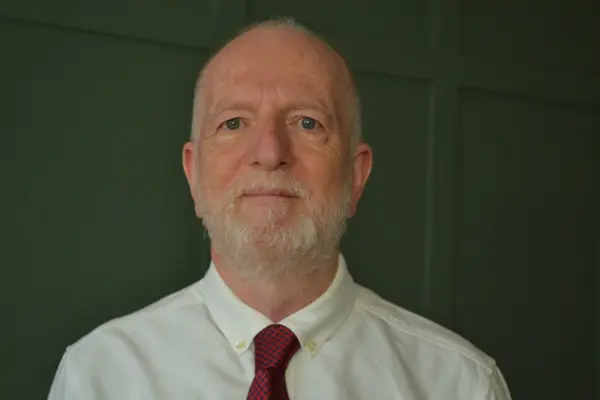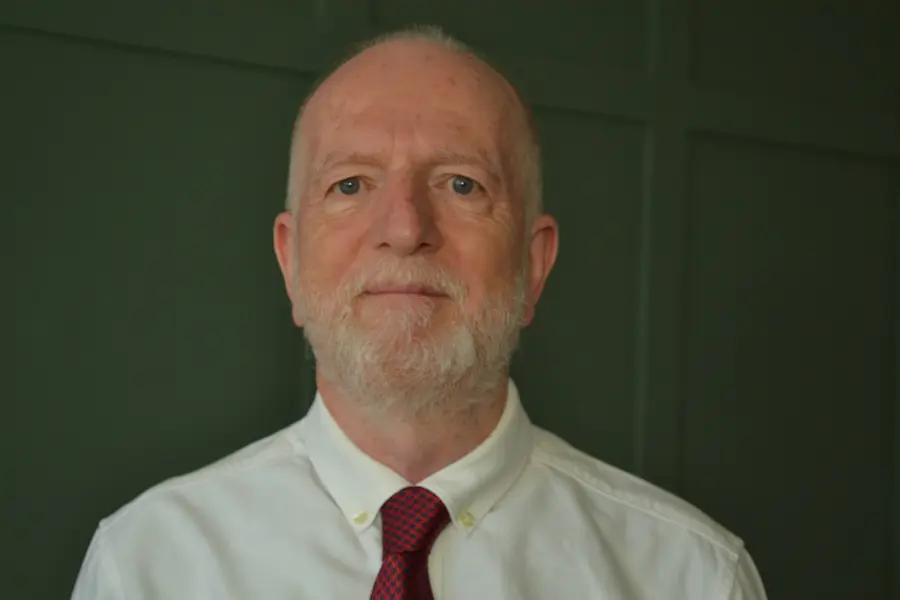
Gerry McMahon is an acknowledged national expert in People Management. He has over 35 years’ experience - as a workplace investigator (on bullying/harassment/ disciplinary/dismissal/grievance issues), trainer, negotiator, facilitator, mediator, arbitrator and team builder - across a wide range of employment sectors. He is the M.D. of the H.R. training and advisory company Productive Personnel Ltd.
Gerry has also had an extensive range of books and articles published and been a columnist with the Industrial Relations News, Irish Times, Sunday Business Post, and Irish Independent and expert commentator on H.R./Employee Relations for R.T.E. and TV3/Virgin. He has also served on numerous Legal Island and C.I.P.D. judging panels and is a Council member of the Irish Association for Industrial Relations.
Contact: Tel. 087-2471415; E-Mail: ppl1gerry@gmail.com
What Is Coaching? ⚓︎
Coaching is based on the premise that we all have talents and abilities that are unrealised. It is primarily a training and development function, where skills and knowledge are imparted. The coach’s role is normally not advisory, but to assist clients in uncovering and expanding their own knowledge and skills and to facilitate them in becoming their own advisers.
Research confirms that coaching is now a popular management tool, due to its capacity to deliver tangible benefits to both individuals and organisations. Earlier this year a survey undertaken by the Chartered Institute of Personnel and Development of employers in Ireland revealed that ‘coaching’ was a top strategic priority for them. This follows hard on the heels of an announcement that executive coaching is now in place for Ireland’s senior civil servants.
The need for coaching can arise from formal or informal performance reviews, but can also feature as part and parcel of normal day-to-day activities across a range of work and leisure time activities (e.g. in sport).
The surge in coaching practice has been driven by a range of organisational and societal trends, such as the globalisation of business and rapidly changing and increasingly competitive marketplaces. A greater recognition of the costs associated with placing personnel in posts to which they are not (at least initially) suitable to, has also accelerated the trend toward the coaching solution.
Successful Coaching ⚓︎
Central to the success of the process is acceptance of the fact that the quality of the coaching relationship is the single most important determinant of its success. In practice then effective coaching tends to do more than ‘tell’ and ‘show’, as it is often characterised by:
- A one-to-one intervention, involving the coach and the client in a partnership approach of ‘equals’.
- Facilitation of the client’s learning, for the purpose of improving their current and future performance.
- A ‘helpful’ intervention where the coach responds to the client’s agenda, and works through the issue(s) with minimal advice or direction, placing maximum emphasis on enabling the client to develop awareness and take responsibility for their own development.
- Viewing the clients as resourceful and capable of resolving their own issues with appropriate empowerment and support.
- Undertaken (normally) inside an agreed fixed timeframe.
Go For G.R.O.W. ⚓︎
The G.R.O.W. mnemonic and model has been central to ‘best practice’ coaching for some time (i.e. Goals – Reality – Options – Will). To progress the coaching relationship and outcomes, the following range of questions are designed to initiate and progress the process:
Goal
- What is it that the employee really wants?
- What are the goals for future performance?
- What must you accomplish in the next 12-24 months?
- What would you like to focus on today? Why?
- How can you break down that goal into bite-sized pieces?
- What’s your ‘gut feeling’ about these ‘pieces’?
- What’s important to you at the moment? Why?
- What are you working on at the moment?
- What challenges are you struggling with at the moment? Why?
- How can you measure that goal?
- Is it realistic?
- Do you want to put a time frame on it?
- Is your work: life out of balance?
- What is the legacy that you want to leave?
- What would your work colleagues say about you?
- What new skill(s) do you want to learn or develop?
- What do you want to be doing in 5 years’ time?
- What’s your ideal future?
Reality
- Where are things at for you now?
- What is the reality in respect of your current performance?
- What’s working well for you at the moment? Why?
- What isn’t working well at the moment? Why?
- What have you done so far to improve things? Why?
- What’s excuse do you normally use for not achieving your goals?
- What aspects of your life will be impacted by reaching the above goal?
- What is the biggest obstacle that you are facing? Why?
- What are you afraid of? Why?
- Work-wise, what are you passionate about?
- What are you willing to endure to see your goal become a reality?
- Do you sabotage yourself? Why?
- What happened the last time you embarked on an important goal achievement path? Why?
Options
- What are your options for closing the gap and addressing\attaining your goal(s) or options? What can\could be done? Why? How?
- What do you think you should do first? Why?
- What would be the most helpful or effective thing that you could do now?
- If resources (e.g. time, money) weren’t restrictions, what would you do?
- What would you do if you weren’t answerable to anyone?
- What would the person you most admire (i.e. your hero) do in this situation?
- What’s the best use of your time at the moment?
- If you could only do one thing this week, what would it be?
- What can you do better than anyone else in your organisation? Why?
- What information sources should you be tapping to help you achieve your goals?
- If you went to your manager with this problem, what would they suggest?
- If you saw someone else in your situation, what would you suggest they do? Why?
Way Forward
- What are you going to do in the next 24 hours?
- What are you going to do between now and our next meeting?
- How committed are you in reaching this goal?
- On a scale of 1 to 10, how motivated are you to achieving this goal? (or what will it take to turn that 5 into a 10?)
- Would it help to speak with anyone about this goal?
- How are you going to celebrate reaching your goal?
- Whatever your first step is, can you think of anything that might stop you from doing it?
- What exactly are you going to do to realise this goal?
- Is there anything else that you need to consider before starting?
- What change(s), if any, are required to enable you to reach the goal?
Practical Tips ⚓︎
To maximise the benefits of the G.R.O.W. model, the following practical tips should be applied:
- Feedback should take place privately and as quickly as possible after the event.
- The employee should be encouraged to do the talking.
- Establish trust. For example, in the feedback session a partnership approach should be adopted, showing that the coach is on the employee’s side, trying to help and support them. In ‘problem’ performer cases the mind-set saying: ‘We’ve got a problem’ is preferred to the one saying ‘You’ve got a problem’.
- Diagnose before prescribing, by listening, trying to understand and getting the employee to identify the problem(s) and prescribe the solutions.
- Guide the session toward agreed action points.
Important Ground Rules ⚓︎
As the coaching intervention’s success is significantly influenced by the quality of the coaching relationship, application of the following ‘ground rules’ should assist:
- Meetings shall take place privately and in a timely manner.
- The client shall be encouraged to do the talking.
- A partnership approach shall be adopted, reflecting the fact that the coach is on the client’s side and tries to help and support them in the establishment of a trusting relationship.
- The client should be enabled to diagnose before prescribing and the coach will assist in the process by listening and trying to understand (see checklist of questions above).
- The coaching sessions should guide toward appropriate action points.
- All matters addressed should remain confidential, unless both parties agree otherwise.
- No issues are 'out of bounds', unless the client indicates to the contrary at the outset of and\or in the course of the coaching relationship.
- Parties agree to proceed on the basis of honesty, respect and (in the coach's case) the provision of an appropriate service.
- Meetings\sessions shall run for no more than 2 hours and be convened once every 2 weeks (subject to availability).
- The coaching relationship\process shall run for an estimated 4-6 month period unless the client directs otherwise.
- The relationship can be wound-up at any time by either party on a 'no fault' basis.
- Unscheduled contact is acceptable, but every effort will be made to confine this to 09h00 - 17h00 Mon.-Fri. (i.e. what is the scope for ‘informal contact’ between sessions?).
The Effective Coach ⚓︎
The key interpersonal skills associated with effective coaching are listening, observing, giving (positive) feedback and – most important of all - questioning. A good question can do more to motivate a client in an appropriate direction than all the books, seminars and lectures in the world. Questions, when posed in the right (non-accusatory) tone, if phrased and timed well, can encourage one to really reflect on what’s important. They can help the client to emerge knowing themselves better than before, to the ultimate benefit of both the client and the employing organisation.
Source: McMahon, G. (2016), Successful Performance Management: Effective Strategy, Best Practice And Key Skills, Liffey Press, Dublin.
Continue reading
We help hundreds of people like you understand how the latest changes in employment law impact your business.
Please log in to view the full article.
What you'll get:
- Help understand the ramifications of each important case from NI, GB and Europe
- Ensure your organisation's policies and procedures are fully compliant with NI law
- 24/7 access to all the content in the Legal Island Vault for research case law and HR issues
- Receive free preliminary advice on workplace issues from the employment team
Already a subscriber? Log in now or start a free trial

